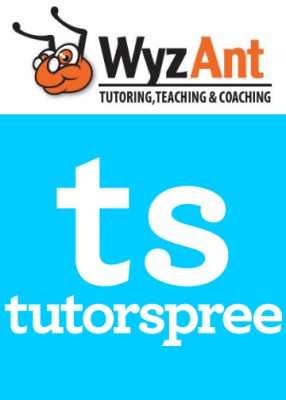Tutorspree launched out of Y Combinator in 2011 to tackle the fast-growing, high-priced and increasingly franchise-happy tutoring market. To take on heavyweights like Sylvan Learning, the startup set out to create a better way for students of any age to find high-quality private tutors, using its proprietary algorithms to match students with teachers based on their location, background and preferences.
By early 2013, Tutorspree had recruited over 7,000 tutors across the U.S., grown to 10 employees and had raised $1.8 million in financing from an impressive roster of investors, including Sequoia Capital, Lerer Ventures and Quora co-founder Adam D’angelo. However, in spite of its promise, six months later, Tutorspree was no more.
Confronted with a laundry list of challenges — namely, being a startup in an increasingly crowded market, scaling a local marketplace and slower-than-expected growth — co-founders Aaron Harris, Josh Abrams and Ryan Bednar made the difficult decision to shutter Tutorspree and return its remaining capital to investors. All in all, it was a disappointing end for a startup once dubbed the “Airbnb for tutoring.”
Today, however, in a dispatch from the Department of Silver Linings, TechCrunch has learned that the Tutorspree story is getting an epilogue. Fresh off a $21.5 million investment, fellow tutoring marketplace competitor, Wyzant, is acquiring Tutorspree and its remaining assets for an undisclosed price.
Because Tutorspree is no longer an operational business, it’s likely that the deal terms (and price) weren’t particularly high. Nonetheless, it’s a positive note to end for Tutorspree — relatively speaking, of course — giving its tutors and stranded student customers a place to land, and the opportunity to recover a bit of change for its investors. And naturally, because all Tutorspree founders and employees have gone onto new projects and companies, the acquisition is strictly an asset purchase.
So, why did WyzAnt decide to do this so late in the game? Simply put, the acquisition gives WyzAnt access to Tutorspree’s customers, their domain and technology at a very affordable price. (Like, we’re talkin’ rock bottom affordable.) Plus, the Tutorspree site has been up and running for a while, without being actively managed — a sad, nagging reminder of the First Rule of Startup Club. (That 90 percent of them fail.)
Though it sounds like fluffy talk, it’s also true that Tutorspree and WyzAnt very much shared similar goals. Both set out to fix the tutoring industry, make it more efficient and affordable and increase accessibility to affordable tutoring, and both companies believed that the marketplace model was the best way to approach these goals.
While Tutorspree struggled to scale, WyzAnt’s eight-year-old tutoring marketplace formula has ben growing steadily. Today, WyzAnt works with over 500,000 tutors and serves over one million students, and the company has amassed more than $100 million in gross sales to date. With a larger base and geographical reach to draw from, WyzAnt has been able to more successfully capitalize on the broader, verticalized marketplace trend that has emerged over the last few years.
Also known as the “sharing economy,” or “peer-to-peer” economy, the companies living under this umbrella are finding fast success by bringing user-friendly online marketplaces to well-established yet predominantly-offline industries. Tutorspree and WyzAnt were two of the better known examples of startups applying this model to the tutoring market.
On top of that, WyzAnt has been able to find success by eschewing a focus on the SATs or a particular subject, instead taking a broader approach, a la Etsy or Amazon — offering tutoring in over 240 subjects that range from K-12 to college, test prep to arithmetic.
Furthermore, as we wrote at the time:
On the flip side, WyzAnt offers a way for tutors to tap into a new pool of customers, while moving their small tutoring service online and bringing in more dollars. Like many other marketplaces, WyzAnt generates revenue by taking a piece of each transaction, with the percentage it takes based on a sliding scale, depending how often the tutor uses WyzAnt. In addition, by offering profiles, payment processing and some basic CRM tools, the company wants to be an easy way for tutors to run their businesses, market themselves and manage usually tedious operational pains, like scheduling and collecting payments.
